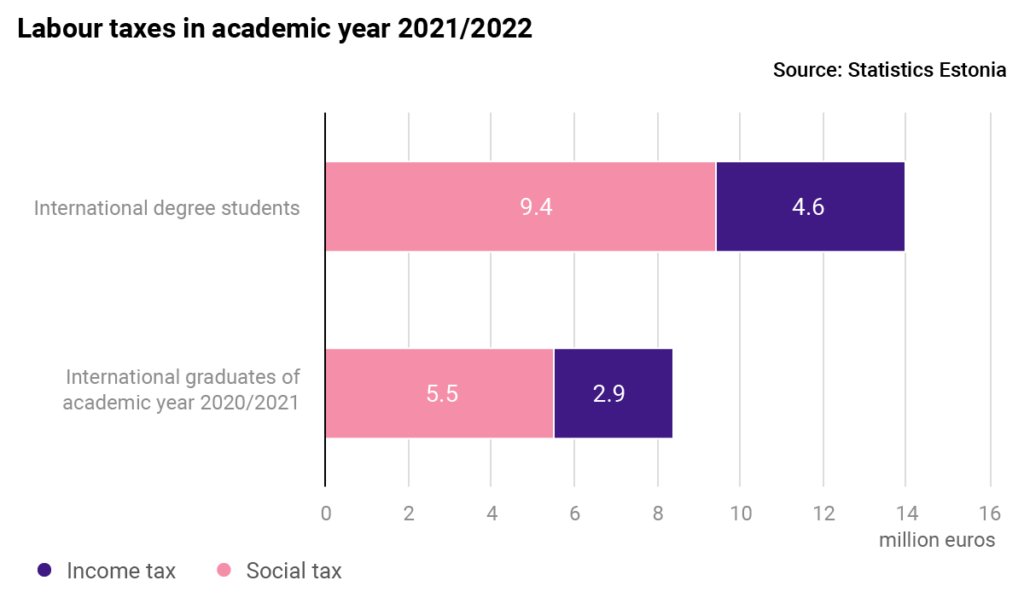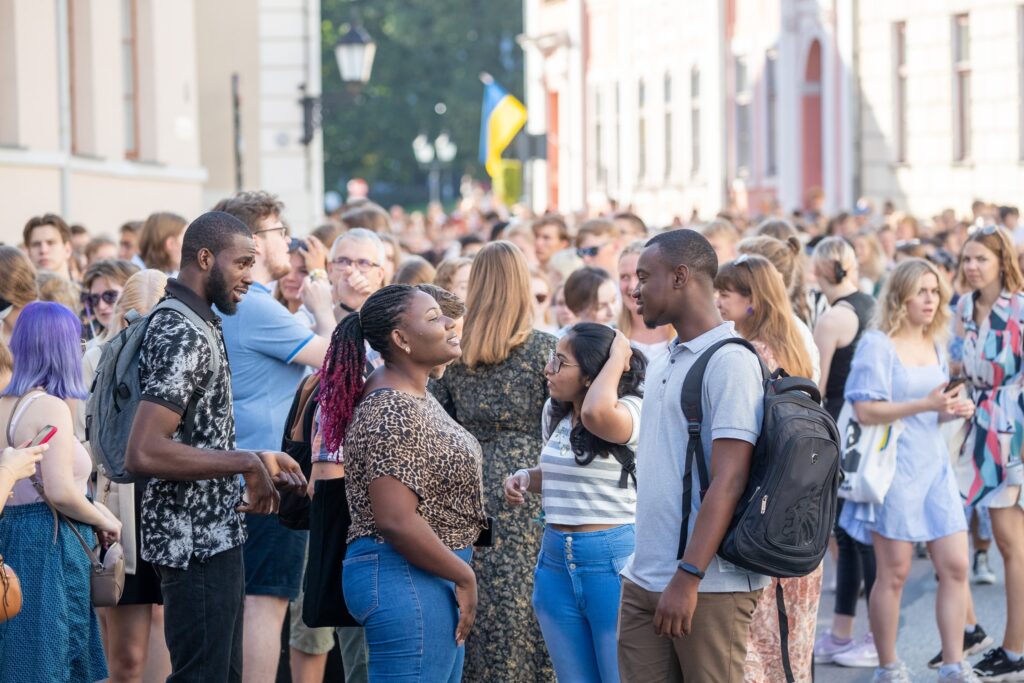According to Statistics Estonia, the country’s official statistics agency, international students and graduates who work in Estonia contributed over €22 million in taxes in the 2021/2022 academic year.
Statistics Estonia analysed the economic contribution of working international students and international graduates. The analysis, commissioned by the Education and Youth Board, shows that, in the academic year 2021/2022, international degree students contributed €14 million and international graduates over €8 million in taxes.
In the recent years, there has been a considerable rise in the number of international graduates who stay to work in Estonia after graduation. The majority of these graduates work in Tallinn.

Kadri Rootalu, a data scientist at Statistics Estonia and the author of the analysis, said that slightly more than half of the international students – about 2,400 – worked at least one day in Estonia during their studies in the previous academic year.
“It should be noted that international students do not work just a few days a year. Both local and international students who work are usually employed for longer periods, that is, for more than 90 days,” Rootalu said in a statement.
International students and graduates mostly work in the ICT sector
The analysis provides information on the tax contribution of international students and graduates based on income and social tax receipts. In the academic year 2021/2022, international students and graduates contributed a total of €22.4 million to the Estonian economy.
International students paid €9.4 million in social tax and €4.6 million in income tax. Students who graduated in the academic year 2020/2021 and stayed to work in Estonia contributed €8.4 million in total as labour taxes, according to the statistics agency.

The most likely to work while studying are international students in information and communication technologies, engineering, manufacturing, construction as well as business, administration and law. For example, three quarters of international ICT students worked during their studies in the academic year 2021/2022.
International students who have already graduated were also analysed. The results indicate that the share of international graduates staying to work in Estonia has increased significantly in recent years. International graduates contributed the most to information and communication enterprises, followed by manufacturing enterprises, and financial and insurance enterprises. Most of the international graduates worked in enterprises based in Tallinn.

